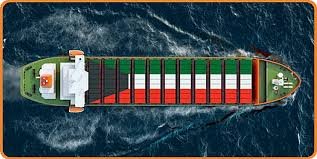Expert shipping services from China to Kuwait with GWT Worldwide. Professional air freight, sea freight, express delivery & customs clearance. Reliable logistics solutions for businesses with competitive rates and fast transit times.
Comprehensive Shipping Services from China to Kuwait
GWT Worldwide provides reliable and cost-effective shipping solutions connecting China to Kuwait, serving businesses of all sizes with professional logistics expertise. Our comprehensive services ensure your goods reach Kuwait safely, efficiently, and in compliance with all international trade regulations.
Giới thiệu về GWT Worldwide – Đối tác hậu cần đáng tin cậy của bạn

GWT Worldwide là nhà cung cấp dịch vụ hậu cần chuyên nghiệp chuyên về giao nhận hàng hóa toàn cầu, giải pháp chuỗi cung ứng và hậu cần thương mại điện tử xuyên biên giới. Với sự hiện diện mạnh mẽ ở cả thị trường Trung Quốc và quốc tế, chúng tôi cam kết cung cấp các dịch vụ hậu cần đáng tin cậy, tiết kiệm chi phí và tùy chỉnh cho các doanh nghiệp trên toàn thế giới.
Các dịch vụ cốt lõi của chúng tôi bao gồm:
- Vận tải hàng không & Vận tải đường biển – Fast and economical shipping options
- Vận tải đường sắt Trung Quốc-Châu Âu – Efficient overland shipping routes
- Giải pháp chuyển phát nhanh và chuyển phát nhanh quốc tế – Cửa đến cửa delivery services
- Thủ tục hải quan và kho bãi – Complete trade compliance support
- Hỗ trợ vận chuyển và dán nhãn của Amazon FBA – E-commerce logistics solutions
Tại GWT Worldwide, chúng tôi tập trung vào hiệu quả, tính minh bạch và sự hài lòng của khách hàng. Bằng cách tích hợp công nghệ hậu cần tiên tiến và mạng lưới đối tác đáng tin cậy toàn cầu, chúng tôi đảm bảo hàng hóa của bạn được vận chuyển an toàn, nhanh chóng và tuân thủ từ nơi xuất phát đến nơi đến. Cho dù bạn là doanh nghiệp nhỏ hay là nhà nhập khẩu/xuất khẩu quy mô lớn, GWT Worldwide là đối tác hậu cần đáng tin cậy của bạn cho hoạt động thương mại toàn cầu liền mạch.
Shipping Options from China to Kuwait

Dịch vụ vận chuyển hàng không
Fast and reliable air cargo services connecting major Chinese cities to Kuwait International Airport. Ideal for time-sensitive shipments, high-value goods, and urgent deliveries.
Key Benefits:
- Transit time: 3-7 days
- Door-to-door delivery available
- Real-time tracking
- Temperature-controlled options
- Competitive airline partnerships
Sea Freight Solutions
Cost-effective vận chuyển đường biển services from Chinese ports to Kuwait’s Shuwaikh Port and Shuaiba Port. Perfect for large volume shipments and cost-conscious businesses.
Service Options:
- Full Container Load (FCL)
- Less than Container Load (LCL)
- Transit time: 18-25 days
- Port-to-port and door-to-door services
- Comprehensive cargo insurance
Dịch vụ chuyển phát nhanh
Premium express delivery services for documents, samples, and small packages requiring urgent delivery to Kuwait.
Features:
- 2-5 day delivery
- Door-to-door service
- Online tracking
- Customs clearance included
- Signature confirmation
Why Choose GWT Worldwide for China-Kuwait Shipping?
Professional Expertise
Our experienced team understands the complexities of China-Kuwait trade routes, ensuring smooth customs clearance and compliance with both countries’ regulations.
Competitive Pricing
We leverage our strong relationships with carriers and service providers to offer competitive rates without compromising service quality.
End-to-End Solutions
From pickup in China to final delivery in Kuwait, we handle every aspect of your shipment, including documentation, customs clearance, and local delivery.
Advanced Technology
Our logistics platform provides real-time tracking, automated notifications, and comprehensive reporting to keep you informed throughout the shipping process.
Chuyên môn về thủ tục hải quan
Our customs specialists ensure all documentation is accurate and complete, minimizing delays and ensuring smooth clearance through Kuwait customs.
Các ngành công nghiệp chúng tôi phục vụ
- Sản xuất & Thiết bị công nghiệp
- Electronics & Technology
- Textiles & Apparel
- Automotive Parts & Accessories
- Consumer Goods & Retail
- E-commerce & Online Retail
- Medical & Pharmaceutical
- Food & Beverages
Getting Started with Your China-Kuwait Shipment
Step 1: Request a Quote
Contact our team with your shipment details including origin, destination, cargo specifications, and timeline requirements.
Step 2: Choose Your Service
Select from our air freight, sea freight, or express options based on your budget, timeline, and cargo requirements.
Step 3: Documentation & Booking
Our team will prepare all necessary documentation and book your shipment with our preferred carriers.
Step 4: Tracking & Updates
Monitor your shipment progress through our online platform and receive automated updates at key milestones.
Step 5: Delivery & Confirmation
Receive your goods at the designated Kuwait location with full delivery confirmation and documentation.
Contact GWT Worldwide Today
Ready to ship from China to Kuwait? Our logistics experts are standing by to provide personalized quotes and shipping solutions tailored to your specific needs. Experience the reliability and professionalism that has made GWT Worldwide a trusted name in international logistics.
Get your free quote today and discover why businesses worldwide choose GWT Worldwide for their China-Kuwait shipping needs.
1. Shipping Methods
Vận tải hàng không
Air freight is the fastest shipping method from China to Kuwait, typically taking 3-7 days for delivery. This method is ideal for high-value, time-sensitive, or perishable goods. Major Chinese airports like Beijing Capital, Shanghai Pudong, and Guangzhou Baiyun connect directly to Kuwait International Airport. While more expensive than sea freight, air shipping ensures quick delivery and reduced inventory holding costs.
Sea Freight
FCL (hàng nguyên container)
FCL shipping is cost-effective for large shipments that can fill an entire container (20ft or 40ft). Shippers have exclusive use of the container, providing better security and faster port handling. Transit times typically range from 18-25 days depending on the route and port congestion.
LCL (hàng lẻ dưới tải container)
LCL allows smaller shipments to share container space with other cargo, making it economical for businesses that don’t have enough goods to fill a full container. While more affordable per cubic meter for smaller volumes, LCL shipments require additional handling time and may take 20-30 days for delivery.
Express Courier
International courier services like DHL, FedEx, and UPS offer door-to-door delivery within 3-5 days. This premium service includes customs clearance and tracking but comes at a higher cost. Vận chuyển nhanh is perfect for documents, samples, and urgent small packages.
Vận tải đường sắt
The Belt and Road Initiative has enhanced rail connectivity, though direct rail service from China to Kuwait is limited. Rail freight typically connects through European or Central Asian routes, offering a middle ground between sea and air freight in terms of cost and transit time.
2. Main Ports and Routes
Chinese Ports
Thượng Hải
Shanghai Port is the world’s busiest container port, offering frequent sailings to the Middle East. The port provides excellent connectivity to Kuwait with multiple weekly departures and comprehensive logistics services.
Thâm Quyến
Strategically located in southern China, Shenzhen Port serves as a major gateway for manufacturing regions in Guangdong Province. The port offers efficient connections to Kuwait through established shipping lines.
Ninh Ba
Ningbo-Zhoushan Port is one of China’s largest ports by cargo throughput, providing competitive rates and reliable service to Middle Eastern destinations including Kuwait.
Quảng Châu
Guangzhou Port serves the Pearl River Delta region and offers regular container services to Kuwait. The port is well-connected to manufacturing hubs in southern China.
Thanh Đảo
Located in northern China, Qingdao Port provides an alternative gateway for shipments from northern manufacturing regions, with established routes to the Persian Gulf.
Kuwait Ports
Shuwaikh Port (main commercial port)
Shuwaikh Port is Kuwait’s primary commercial port, handling the majority of the country’s container traffic. The port offers modern facilities and efficient cargo handling equipment, making it the preferred destination for most China-Kuwait shipments.
Shuaiba Port (industrial focus)
Shuaiba Port specializes in industrial cargo and bulk commodities. While primarily serving the petrochemical industry, it also handles general cargo and offers alternative berthing for large vessels.
Doha Port (smaller operations)
Doha Port handles smaller-scale operations and serves as a backup facility. It primarily deals with local cargo and fishing industry needs.
Main Shipping Routes
The primary shipping route from China to Kuwait follows the path: China → Strait of Malacca → Indian Ocean → Arabian Sea → Persian Gulf → Kuwait. This route typically takes 18-25 days and is served by major shipping lines including COSCO, MSC, Maersk, and CMA CGM.
3. Documentation and Customs Requirements
Required Documents
Shipping from China to Kuwait requires comprehensive documentation to ensure smooth customs clearance. Essential documents include a commercial invoice, certificate of origin, packing list, and a bill of lading or airway bill. The commercial invoice must be accurate and detailed, showing product descriptions, quantities, values, and terms of sale.
Additional documents may include:
- Import license (for restricted goods)
- Health certificates (for food products)
- Technical inspection reports for regulated products
- Insurance certificates
- Customs declaration forms
Customs Clearance in Kuwait
Only authorized local agents can clear items at Kuwait Customs by showing an official letter of representation and a letter from the end-user. The customs clearance process involves document verification, physical inspection (if required), duty calculation, and payment of applicable taxes and fees.
All consignments containing regulated products must be accompanied by Technical Inspection Reports (TIR) and Technical Evaluation Reports (TER) under the Kuwait Conformity Assurance Scheme (KUCAS).
4. Costs and Pricing Factors
Cost Components
Shipping costs from China to Kuwait include several components:
- Base freight charges (varies by shipping method and volume)
- Fuel surcharges
- Documentation fees
- Customs clearance charges
- Port handling fees
- Insurance costs
- Destination delivery charges
Price Determinants
Several factors influence shipping costs:
- Shipping method selected (air, sea, express)
- Cargo volume and weight
- Seasonal demand fluctuations
- Fuel price variations
- Port congestion and delays
- Special handling requirements
- Insurance coverage level
- Destination location within Kuwait
Sea freight is generally the most economical for large shipments, while air freight offers speed at a premium price. Express courier services provide convenience but at the highest cost per kilogram.
5. Shipping Times
Shipping times vary significantly based on the chosen method:
- Express Courier: 3-5 business days door-to-door
- Vận tải hàng không: 5-7 days including customs clearance
- Sea Freight FCL: 18-22 days port-to-port
- Sea Freight LCL: 20-25 days including consolidation time
- Vận tải đường sắt: 25-35 days depending on route
These timeframes can be affected by customs clearance procedures, port congestion, weather conditions, and peak shipping seasons. During Chinese New Year and Ramadan, expect potential delays due to reduced operational capacity.
6. Specialized Services
Door-to-Door Shipping
Many freight forwarders offer comprehensive door-to-door services, handling pickup from the supplier’s facility in China to final delivery at the consignee’s location in Kuwait. This service includes customs clearance, local transportation, and delivery coordination.
Dangerous Goods Handling
Shipping hazardous materials requires specialized handling and documentation. Freight forwarders certified in dangerous goods management ensure compliance with international regulations (IMDG Code for sea freight, IATA regulations for air freight).
Refrigerated Shipping
Temperature-controlled shipping maintains the cold chain for perishable goods like food products, pharmaceuticals, and chemicals. Reefer containers provide precise temperature control during sea transit, while air freight offers faster delivery for highly perishable items.
Oversized Cargo
Heavy lift and project cargo require specialized equipment and planning. Break-bulk vessels, flat-rack containers, and open-top containers accommodate oversized machinery, construction equipment, and industrial components.
7. Freight Forwarders and Shipping Agents
Services Offered
Professional freight forwarders provide comprehensive logistics solutions including:
- Rate negotiations with carriers
- Cargo booking and space allocation
- Documentation preparation and verification
- Customs clearance coordination
- Cargo insurance arrangement
- Tracking and status updates
- Problem resolution and claim handling
Choosing a Freight Forwarder
Select freight forwarders based on:
- Experience in China-Kuwait trade lane
- Network coverage in both countries
- Service range and capabilities
- Technology platforms for tracking and communication
- Customer references and testimonials
- Financial stability and insurance coverage
- Competitive pricing and transparent fee structure
8. Import Regulations and Compliance
Kuwait Import Regulations
Kuwait maintains specific import regulations designed to protect local industries, ensure product safety, and generate customs revenue. Importers must comply with:
- Product classification under Kuwait Customs Tariff
- Import duty payments (rates vary by product category)
- VAT application on imported goods
- Licensing requirements for restricted products
- Technical standards compliance for regulated items
Prohibited items include weapons, alcohol, pork products, and materials deemed inappropriate for cultural or religious reasons. Restricted items require special permits or licenses before importation.
Trade Agreements
Kuwait participates in various trade agreements that may affect import duties and procedures:
- GCC Customs Union agreements
- Bilateral trade agreements with China
- World Trade Organization commitments
- Free trade zone benefits
These agreements may provide preferential treatment for certain products or simplified customs procedures.
9. Challenges and Considerations
Shipping from China to Kuwait presents several challenges:
Documentation Complexity: Kuwait requires detailed and accurate documentation. Any discrepancies can result in delays or additional costs. Working with experienced freight forwarders helps ensure proper documentation.
Cultural and Religious Considerations: Kuwait has strict regulations regarding culturally or religiously sensitive products. Understanding local sensitivities prevents shipment rejections.
Peak Season Congestion: Chinese New Year and Ramadan can cause significant delays due to reduced operational capacity and increased demand.
Currency Fluctuations: Exchange rate variations between Chinese Yuan, US Dollar, and Kuwaiti Dinar can impact total shipping costs.
Geopolitical Factors: Regional tensions or trade disputes may affect shipping routes and schedules.
Quality Control: Ensuring product quality before shipment prevents costly returns and maintains business relationships.
10. Best Practices and Tips
Plan Ahead: Book shipments well in advance, especially during peak seasons. Early planning ensures space availability and better rates.
Accurate Documentation: Provide complete and accurate product information to avoid customs delays. Work with suppliers to ensure proper documentation.
Insurance Coverage: Protect your investment with appropriate cargo insurance. Consider all-risk coverage for high-value shipments.
Packaging Standards: Use proper packaging to prevent damage during transit. Consider the long sea journey and multiple handling points.
Communication: Maintain regular communication with your freight forwarder and Kuwait consignee throughout the shipping process.
Local Partnerships: Develop relationships with reliable local agents in Kuwait for smooth customs clearance and delivery.
Track and Monitor: Use tracking systems to monitor shipment progress and proactively address any issues.
Cost Management: Compare quotes from multiple freight forwarders and understand all cost components before making decisions.
Compliance: Stay updated on changing regulations in both China and Kuwait to ensure continued compliance.
Backup Plans: Have contingency plans for potential delays or disruptions, especially for time-sensitive shipments.
11. Conclusion
Shipping from China to Kuwait requires careful planning, proper documentation, and professional expertise to ensure successful delivery. By understanding the various shipping methods, costs, and requirements outlined in this guide, businesses can make informed decisions that optimize their supply chain operations.
Success in China-Kuwait shipping depends on choosing the right shipping method for your specific needs, working with experienced freight forwarders, maintaining accurate documentation, and staying compliant with both countries’ regulations. Whether you’re shipping electronics, textiles, machinery, or consumer goods, proper preparation and professional guidance will help ensure your cargo reaches Kuwait safely and efficiently.
The strong trade relationship between China and Kuwait, supported by excellent shipping infrastructure and professional logistics services, provides numerous opportunities for businesses to expand their operations. By following the best practices and considerations outlined in this guide, companies can navigate the complexities of international shipping and build successful trade relationships between these two important markets.
Related Reading: Shipping from China to Iraq
